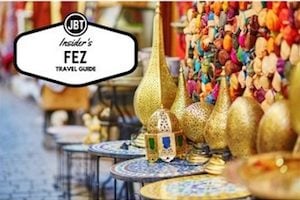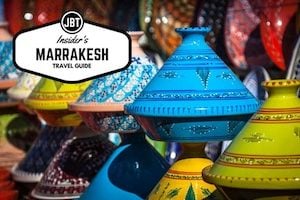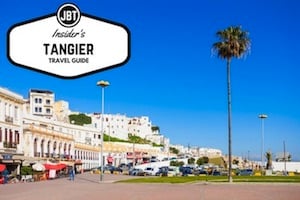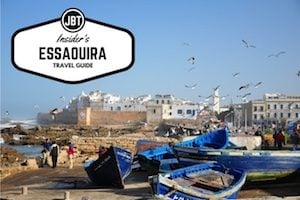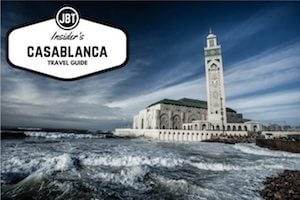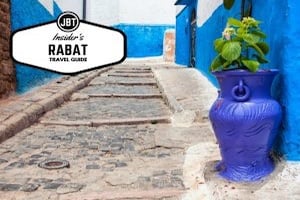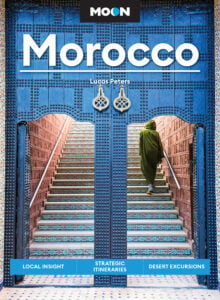When you imagine the people of Morocco, you maybe first imagine the sultans and viziers, the pashas, as the blue-turbaned men gracefully leading their train of camels through the vast sandy ergs of the Sahara. These are the men of Morocco, sure, but what of the women? Where are the heroines, the famous Moroccan women of Morocco?
In truth, after just a little digging, it is easy to find so many amazing, talented, and rightfully famous Moroccan women throughout history who have achieved incredible things. It was really hard to choose just a few Moroccan heroines for this article! Below, you’ll read about some of the incredible women of Morocco and their wonderful achievements… but do not think that this list is exhaustive! There are sooooo many more!
Fatima al-Fihri
It is safe to say that Fatima al-Fihri has perhaps contributed more to education over time than any other woman in history. Originally from what is today Tunisia, Fatima arrived with her family to the city of Fez in the early 9th century. Her father became a wealthy merchant and, on his death, awarded Fatima and her sister, Mariam, his fortune. Fatima and her sister both built mosques with their fortune, though Fatima added a madrasa (Koranic School) to the mosque she built, dubbed the al-Qurawiyyin University, in 859CE. This university is thought to be the oldest university in the world. It still continues its function today, awarding degrees throughout the centuries in Grammar, Islamic Studies, Mathematics, and Medicine.

Not surprisingly, the university is also home to what is often thought of the world’s oldest library. The Qurawaiyyin Library was recently renovated and among its collection counts a 9th century Qu’ran as well as the earliest collection of hadiths.
Some of the most famous scholars to study at Fatima’s university include the explorer and author Leo Africanus and as well as the historian Ibn Khaldun.
It is known that Fatima fasted for 18 years over the construction of the mosque and at the time of her death, the university had mosque had already been functioning for quite a few years. It’s not wonder she’s also known as “Umm al-Banayn” or “Mother of the Children“ (as in “the children” of Fez and her university).
Fatima Mernissi
Born in 1940, Fatima is a leading scholar, feminist, author and activist of North Africa and the Arab World. Universities worldwide stuff their syllabi with passages of her works, including the incredibly readable Beyond The Veil: Male-Female Dynamics in Muslim Society. This book has become a “must read” for anyone interested in the plight of women in Morocco, particularly. Though her research was done decades ago, the letters she includes from men and women around Morocco could have been written last week. These issues haven’t changed as the years have gone on. If anything, they’ve become more pronounced.

However, Beyond The Veil is not her most famous book. That distinction belongs to The Veil and the Male Elite: A Feminist Interpretation of Islam. This is a historical exploration of the wives of the prophet Muhammed. At the time of its publication, it was banned in many countries, including her home country of Morocco, and continues to be banned in more conservative Islamic countries, such as Saudi Arabia, today. Published in 1987, this made a name for Fatima Mernissi as a leading Islamic feminist scholar of her generation.
After an illustrious career and many awards fighting for the rights and strength of women to be recognized, particularly in Islam, Fatima Mernissi passed away in Rabat in 2015.
Aïcha Chenna
Born in 1941, in the midst of World War II, it’s probably more than coincidence that she grew to become a registered nurse. Her story is one of true strength. When she was a child, her father died and her mother remarried. At the age of 12, her stepfather wished her to drop out of school. Instead of allowing this, her mother sent her to Casablanca to live with an aunt. In Casablanca, Aïcha finished her studies and, at the urging of her mother and friends, pursued nursing.
Aïcha worked in the Ministry of Health where she continued to educate the populace and worked toward a public consciousness of health issues, including basic sanitation. In the 1970s she even had a television show!

However, it was her work in the 1980s, namely the founding of the Female Solidarity Association, that brought her fame and notoriety. This NGO was the first of its kind in Morocco that reached out to single mothers, educating them on basic health and family planning, as well as supporting victims of abuse. Even today, this NGO is at issue in the largely patriarchal, conservative corners of the country.
Aïcha is a holder of the Opus Award, an award given yearly to unsung heroes working on pressing social needs, among many, many others! Aïcha is also the author of the collection of stories: Misery: Testimonies, a collection of twenty stories of women she has worked with over the years. This work was originally published in French and has not yet been translated to English, though we hope there will be one soon. Aïcha is already known all over the French-speaking world for her work. It’s only a matter of time before her work as one of the most famous Moroccan women will be more widely known to an English-speaking audience.
Nawal El Moutawakel
In the Arab World, sports are largely the domain of men. Tests of strength and endurance, agility and speed, are traditionally viewed as unfit for women to participate in. Keep in mind that in traditional society, a woman’s place is really at home with the children, perhaps helping to work in the fields, and definitely in the kitchen.
… so it was more than a surprise to a few Arabs that the first ever person to win an Olympic gold medal as not a man, but a woman! No wonder she’s one of the most famous Moroccan women around the world!
Nawal el Moutawakel, born in 1962, won the Olympic Gold Medal for Morocco in 1984. At the time, she was studying at Iowa State University. The win shocked the world, including those throughout North Africa and the Middle East. Though given her history of 1st places finishes in races throughout the world, including the Africa Championships of 1982, perhaps it shouldn’t have been such a surprise!
Today, Nawal continues to be a pioneer for girls and women in a Muslim and Arab context that continues to hold traditional stereotypes toward the place of women in the world. In 1983, she founded the first ever 5k “Fun Run” in Casablanca for girls. Today, the run brings together over 30,000 women a year, which holds the mark for the largest women-only race in the Muslim world.
Nawal is a member of the International Olympic Committee and continues to support Morocco on the international stage of competitive sports.
Leila Slimani
Perhaps a somewhat controversial name on this list because of her dual nationality (she is both French and Moroccan), Leila was born in Rabat in 1981. After completing her studies, she moved to Paris where she completed university and became journalist. It was while covering the Arab Spring in 2011 that Leila decided to become a novelist.
Today, she is most well-known for her novel The Perfect Nanny (Lullaby, in the UK). The story follows the double-homicide of two children by their nanny. It thrilling, though careful, dissection of the modern day upper class Parisian bourgeoisie. It was awarded France’s greatest literary award, the Prix Goncourt, among others, in 2016.

Leila is also a personal representative to the French President Emmanuel Macron, of the International Organization of Francophones. This organization represents Morocco, among 88 other member states and governments, where French language and culture are notable. She is also the author of Sex and Lies: Sex Life in Morocco, a collection of her interviews and encounters with women she had while on book tour in Morocco, as well as the novel Adèle. No wonder she’s one of the most famous Moroccan women in the world!
About the Author
 Lucas Peters is an award-winning writer, photographer, and Morocco expert. He has lectured on feminism in Morocco and Islam at Al Akhawayn University in Morocco as well as the Sorbonne in Paris. He penned the best-selling guidebook Moon Morocco as well as Marrakesh and Beyond. He lives in Tangier with his family and is the Managing Director of Journey Beyond Travel.
Lucas Peters is an award-winning writer, photographer, and Morocco expert. He has lectured on feminism in Morocco and Islam at Al Akhawayn University in Morocco as well as the Sorbonne in Paris. He penned the best-selling guidebook Moon Morocco as well as Marrakesh and Beyond. He lives in Tangier with his family and is the Managing Director of Journey Beyond Travel.


